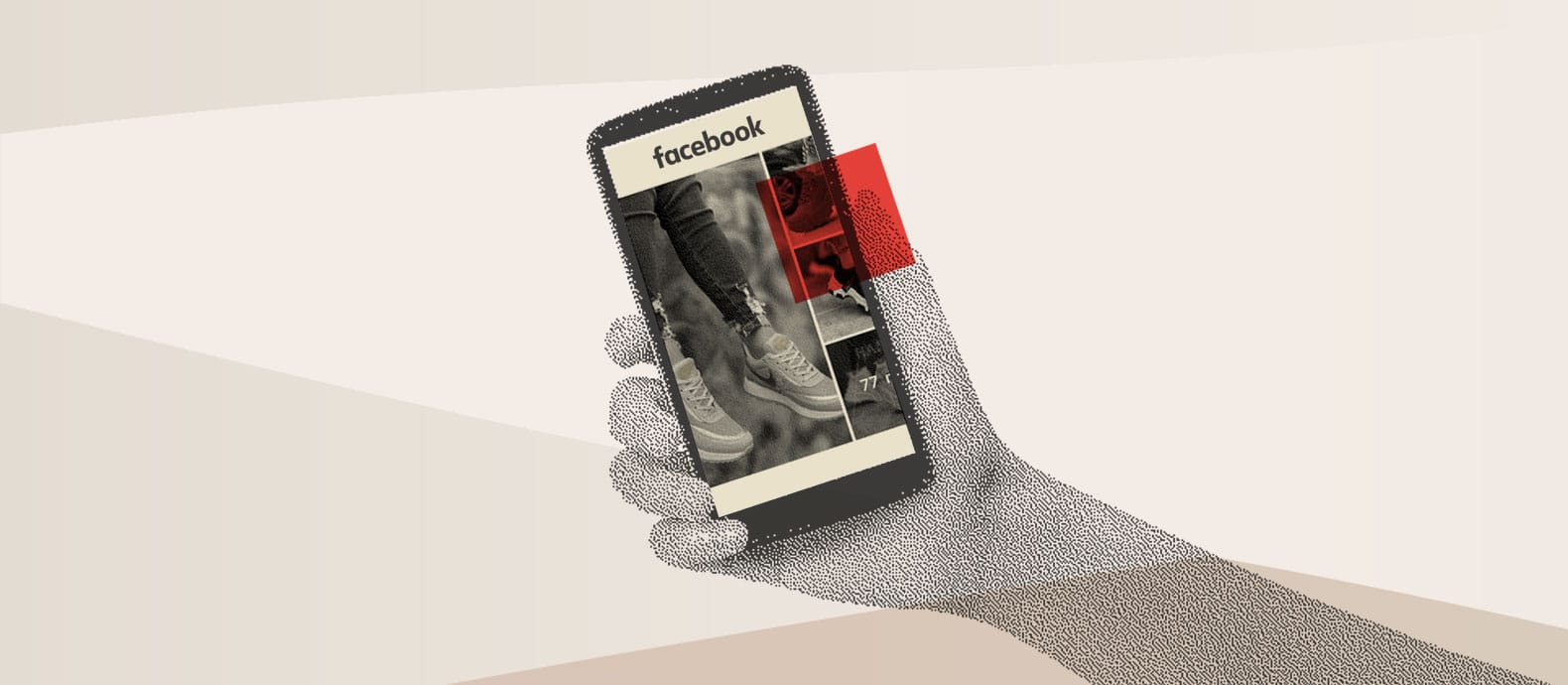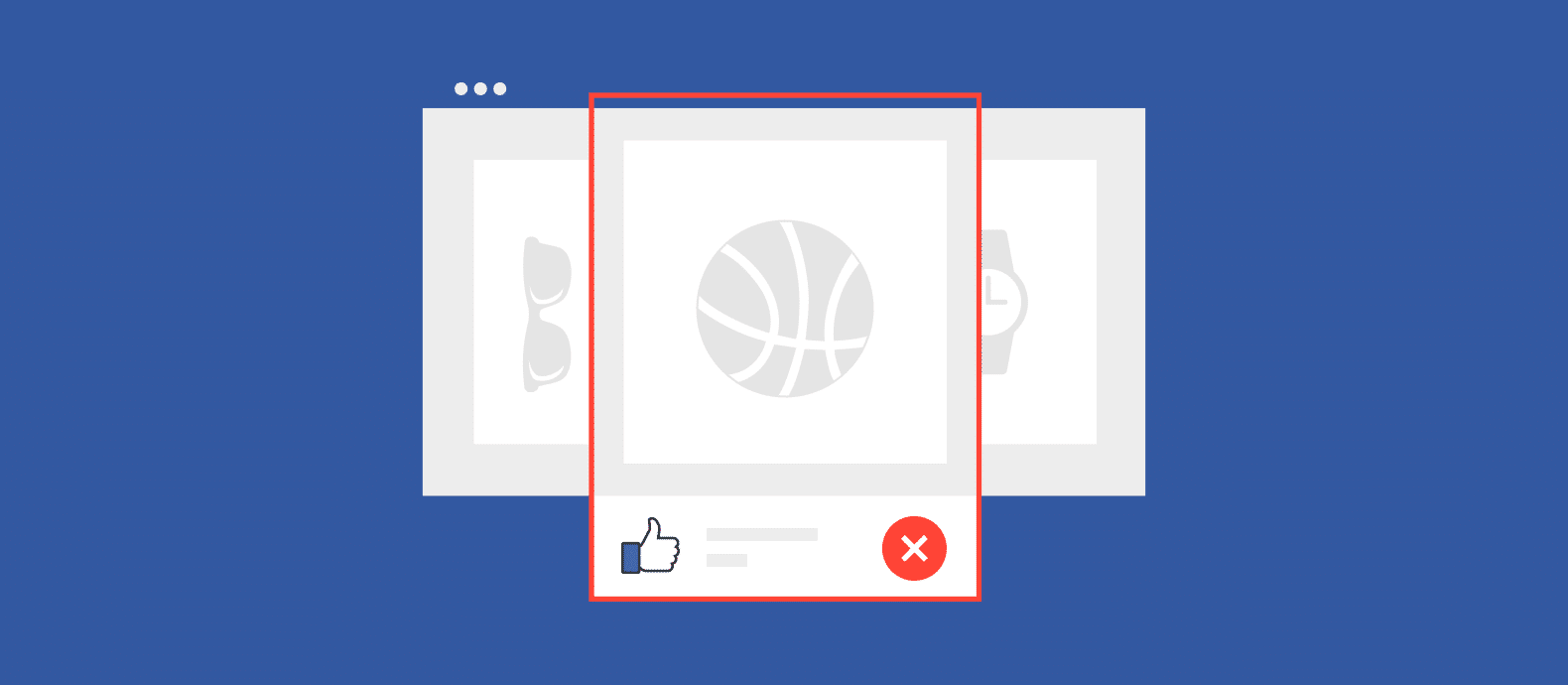With a global recession triggered by COVID-19, many small and midsize businesses (SMBs) are struggling to pay the rent. To help out, Facebook recently introduced Facebook Shops, a social network ecommerce feature that makes it easy for SMBs to sell directly to their social media base.
Here are five things brands should know about Facebook Shops.
Summary
- The barriers to entry are low (almost anyone can sign up in the future)
- Business verification is optional
- Facebook live shopping present a new opportunity for brands
Everything brands need to know about Facebook’s new social ecommerce.
1. Almost anyone will be able to sign up
Right now, Facebook Shops is limited to a small number of businesses that use Page Shops. In the near future, that will expand and more Facebook Page shops will be converted to the new Facebook Shops.
Besides creating a Facebook merchant account and connecting third-party platforms like Shopify, there isn’t anything unique about the sign-up process. According to Facebook’s policies, not every business needs to be verified to have a Shop page. The incentive for verification is extra features like showing a confirmed page owner or using developer tools.
Facebook wants to expand business for as many SMBs as possible. Many have used Facebook to start selling merchandise for the first time because of COVID-19 and are reaching customers outside of their local area. While Facebook Shops can help SMBs get through this time, they need to remain careful and leverage Facebook’s existing reporting features to prevent bad actors from piggybacking on this positive move.
2. It’s free
Facebook said in a recent release, “Any seller, no matter their size or budget, can bring their business online and connect with customers wherever and whenever it’s convenient for them.”
There’s no cost to setting up a Facebook Shop. If a brand chooses to use Facebook Pay, Facebook will take a 5% fee from every transaction. However, brands that sell on Shopify, Woocommerce, or other ecommerce platforms will be able to connect their Facebook Shop page to the platform for payment processing. In that case, the business wouldn’t pay any fee to Facebook to have a Facebook Shops page and sell through another platform.
Even if a business decides to use Facebook Pay, there are no setup fees involved. The no-cost signup process is another example of a low barrier to entry that will allow almost anyone to use the social network’s ecommerce functionality.
3. Purchases can be anonymous
Facebook’s policy for its online stores protects shoppers’ privacy. When someone buys something through a Facebook Shop, the default option is for the shopper’s Facebook account not to share any sort of public notification or post on their wall. Facebook only shares personal information about the shopper with the seller if the shopper uses Facebook Pay.
If a brand wants to track multiple Facebook Shops for possible infringements, it can be hard to decide which shop is selling more infringing products to prioritize next steps.
Encrypted payments in chat services like WhatsApp are also coming. According to Facebook, “You’ll be able to view a business’ shop and make purchases right within a chat in WhatsApp, Messenger or Instagram Direct.”
4. The onus remains on brands to report IP infringements
The process for creating a Facebook Shops account is essentially the same as it was for creating a Facebook Page shop. Given the company’s existing brand protection programs, it isn’t introducing any new requirements to vet sellers and brands have the responsibility to report violations to Facebook to start that process.
As of 2019, there were over 90 million small businesses on Facebook. That’s huge. The number will likely continue to grow with the introduction of Facebook Shops and economic pressures from the recession, but it’s important that for companies considering Facebook Shops as a potential new sales channel to first consider putting together an IP strategy in place to avoid bad surprises.
5. Facebook Live Shopping Presents opportunities
Facebook Live Shopping is a feature that enables Facebook Shop owners to go live and sell products to viewers on a video feed. What’s unique is that sellers can offer different products than what they have in store.
In its press release Facebook also mentioned that “Soon, sellers, brands and creators will be able to tag products from their Facebook Shop or catalog before going live and those products will be shown at the bottom of the video so people can easily tap to learn more and purchase. We’re starting to test this with businesses on Facebook and Instagram, and we’ll roll it out more broadly in the coming months.”
This new addition will offer a new opportunity for small businesses to expand their business reach online in these difficult times. Today, it only takes a little skill to build a social media following and capitalize on it. With so many people indoors and on their mobile devices, Facebook Shops offers a huge target audience to go after. So this provides a great opportunity for brands to strengthen customer loyalty, and build their e-reputation by ensuring consumers are receiving legitimate goods that meets their expectations.
Conclusion
Facebook Shops will do a lot to help struggling SMBs through this hard economic time. However, brands should continue to remain vigilant and leverage Facebook’s existing brand protection programs to prevent bad actors to take advantage of new ways to find customers and exploit IP. The program is small right now, but brands should keep an eye on social media to safeguard their interests and ensure they reap the benefits of this exciting new feature.






